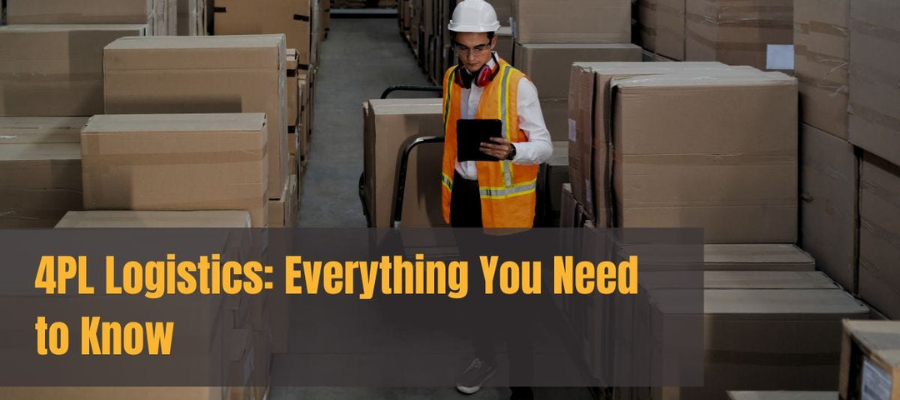
Exploring 5 Different Types Of Logistics
Navigating the logistics landscape is vital to understanding supply chain management, as the industry plays a critical role in various sectors, such as manufacturing, retail, and e-commerce. Logistics ensures that resources flow smoothly from purchase to delivery, crucial for reducing costs and maintaining timely deliveries in today’s global market.
However, in this blog post, we’ll uncover the different types of logistics, ranging from inbound to fourth-party logistics, each pivotal for efficient supply chain operations and meeting the diverse needs of logistics service providers and businesses alike. But before, you must understand the role of logistics, and that’s why we write some of them for your ease.
The Role of Logistics in the Industry
Logistics in business operations are fundamental and multifaceted. It involves the management of the flow of goods and services from the point of origin to the point of consumption, encompassing various activities such as transportation, warehousing, inventory management, packaging, and distribution. Here are some critical aspects of the role of logistics:

1) Efficient Movement of Goods: Logistics ensures that products are transported from suppliers to manufacturers and then to distributors and retailers in a timely and cost-effective manner. However, this involves choosing the most suitable transportation modes (land freight, air freight, or sea freight) and optimizing routes.
2) Inventory Management: Effective logistics management involves maintaining optimal inventory levels to meet customer demand while minimizing carrying costs. This requires accurate forecasting and coordination with suppliers to ensure the availability of goods.
3) Warehousing and Storage: Additionally, logistics includes the management of warehouses and storage facilities. This involves organizing inventory and optimizing storage space for efficiently picking, packing, and shipping orders.
4) Supply Chain Integration: Moreover, logistics plays a crucial role in integrating various stages of the supply chain, from sourcing raw materials to delivering finished products. This integration involves coordinating activities across stakeholders, including suppliers, manufacturers, distributors, and retailers, to ensure smooth operations.
Cost Management: Besides, effective logistics management helps businesses control costs throughout the supply chain by optimizing transportation routes and reducing inventory carrying costs, minimizing warehousing expenses, and streamlining distribution processes.
5 Different Types of Logistics
Now you understand the role of logistics and why it is important, it’s time to explore the 5 types of logistics and their components that keep the gears of commerce turning smoothly.
1: Inbound Logistics
2: Outbound Logistics
3: Reverse Logistics
4: Third Party Logistics (3PL)
5: Fourth Party Logistics (4PL)
Inbound Logistics
Inbound logistics is the linchpin of your supply chain, focusing on bringing products and supplies into your business. It’s a multi-step process that includes:
1) Sourcing Materials: Identifying and negotiating with suppliers to acquire the necessary goods at the most favorable prices.
2) Transportation: Additionally, coordinating the movement of these goods, whether via truck, air carrier, or a combination thereof.
3) Warehousing: Once at your site, it involves receiving, inspecting for damage, inventory storage, and sometimes reverse logistics for returns.
Outbound Logistics
When you think about getting your products into the hands of customers, you’re pondering the critical role of outbound logistics. The journey begins with a customer’s order and doesn’t end until the product is in their hands. This process encompasses order confirmation, fulfillment, shipping, and last-mile delivery.
However, outbound logistics is about the best movement of your finished goods. Key components include:
1) Efficiency: Streamlining the supply chain to ensure goods move swiftly from one point to the next is very important.
2) Accuracy: By reducing errors, you gain better control over what goes out, ensuring customers receive exactly what they ordered.
3) Speed: Moreover, quicker delivery times can give you a competitive edge and make your customers happier.
4) Revenue: Lastly, a smooth customer experience can lead to repeat purchases, bolstering your sales.
Reverse Logistics
Reverse logistics also stands out as a critical component of the supply chain, focusing on the return journey of products from customers to companies. However, the process of reverse logistics typically includes:

1) Processing Returns: Handling the initial return from the customer and sorting it into the appropriate category.
2) Waste Reduction: Strategically moving products to minimize waste and maximize resource utilization.
3) Repair and Recycle: Furthermore, carrying out repairs or refurbishing where possible, and recycling items that can’t be repaired or resold.
However, the common reasons for returns often include:
1) Incorrect product sent
2) Damage during shipping
3) Mismatch with description
4) Failure to meet expectations
5) Defective items
Third Party Logistics (3PL)
When you’re looking to streamline your supply chain, Third Party Logistics (3PL) providers are like the ace up your sleeve. They’re the experts who take on the logistics services for your business, from the heavy lifting of warehousing to the finesse of transportation management. Here’s what you can expect when you hand over the control to a 3PL provider:
1) Comprehensive Services: Whether you need help with transportation, warehousing, or a combination of services, 3PLs are equipped to manage various aspects of your supply chain.
2) Operational Efficiency: Furthermore, 3PLs are all about taking the day-to-day logistics operations. Imagine having a team that manages the shipping and ensures that orders are picked, packed, and shipped.
3) Customization and Scalability: Your business is unique, and so are your logistics needs. However, 3PL providers understand this and offer services that are customizable to your requirements.
With a 3PL like Riseonic Shipping Lines, you can tap into a network ready to handle various freight types, including LTL and intermodal, ensuring that your products are moving efficiently no matter the mode of transportation. And if you’re operating an e-commerce business like HC online store, our network seamlessly integrates with your store, offering services that ensure on-time delivery and hassle-free returns.
Fourth Party Logistics (4PL)
When you’re ready to take your business’s logistics to more upgrade level, Fourth Party Logistics (4PL) providers are the partners in comprehensive supply chain management for different types of logistics services. Think of a 4PL as your supply chain quarterback, overseeing every play and coordinating all moving parts to ensure your operations run smoothly. Here’s what sets them apart:

1) Single Point of Contact: With 4PL, you have one dedicated team managing your entire supply chain, from warehouses and shipping companies to freight and agents.
2) Integrated Solutions: Additionally, they don’t just manage; they integrate. 4PL providers craft tailored strategies, employing the right tools and technologies to enhance logistics efficiency.
3) Network Access: Moreover, by using their connections, 4PLs can bring efficiencies to your supply chain management that you might not achieve on your own.
Services and Management Aspects:
1) Strategic Oversight: 4PLs handle the big picture, including evaluating, designing, and implementing logistics solutions that align with your business goals.
2) Technology Integration: They utilize advanced technology platforms like GEP SMART and GEP NEXXE, offering you real-time visibility and execution capabilities.
3) Comprehensive Accountability: Unlike 3PLs, 4PLs take on greater responsibility, managing transportation, shipping orders, and overseeing multiple 3PLs to ensure every aspect of your supply chain is optimized.
Conclusion
Understanding the complex world of logistics is important for businesses seeking to enhance efficiency and stay ahead of others. Companies can create stories of innovation, efficiency, and customer satisfaction after exploring the 5 different types of logistics that are given in this blog. These strategies, when executed effectively, not only streamline operations but also forge enduring connections with customers, ultimately driving the industry forward.
As businesses continue to expand their reach and streamline their supply chains, the partnership with a reliable logistics provider can be a transformative step. To improve your shipping operations, check out Riseonic Shipping Lines. We’re experts in global trade and can help you navigate smoothly. However, the journey toward a refined and strategic approach to logistics is the beginning of opportunities for growth and enhanced customer loyalty.
